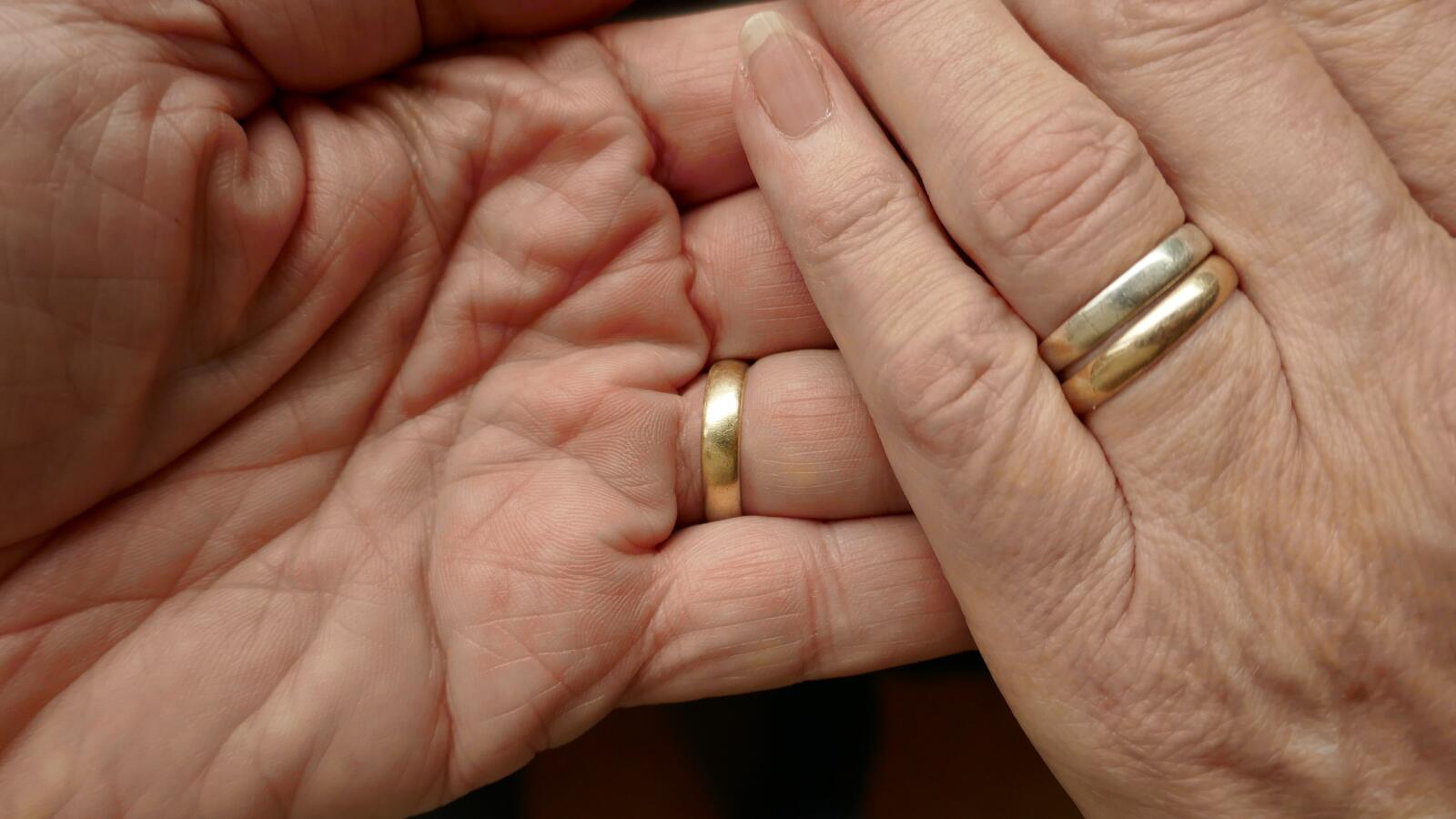It usually starts with a phone call. The voice on the line is very tentative, afraid of being rebuffed or giving offense: “Somebody gave me your name and… umm… do you officiate at interfaith marriages?”
My reply–“Sometimes. Can you tell me a little about your situation?”–elicits a sigh of relief, followed by a torrent of information, feelings, and concerns. Once we’ve worked through the preliminaries on the phone–the rabbi will be the only officiant; I don’t do weddings on Shabbat; and yes, that includes Saturday at 7:30 in June; the date and place are viable for me–we schedule an appointment so that I can meet face-to-face with both partners and talk.
Does This Relationship Support a Jewish Future?
We meet and have an excellent conversation. After an hour or so of careful questions and answers, and if it becomes clear to me that this is a relationship that will support a Jewish future, one I can say a blessing over, I will agree to do the wedding. Just as we’re finishing up, that anxious tone reappears in one of their voices: “Do you mind if I ask you one more question?”
“Not at all.”

Help us keep Jewish knowledge accessible to millions of people around the world.
Your donation to My Jewish Learning fuels endless journeys of Jewish discovery. With your help, My Jewish Learning can continue to provide nonstop opportunities for learning, connection and growth.
“We’ve been turned down by a dozen rabbis all over the state. How come you’re willing to do interfaith marriages and they’re not?”
It’s a fair question, one I’ve been asked repeatedly over 28 years as a rabbi. Why do I officiate when so many of my colleagues do not? The answer comes in two parts. The first question is, Can I officiate at such a marriage? Only if that question is answered in the positive, does the second question arise, should I?
Rabbi’s Relationship to Jewish Law Is Determinative
Whether a rabbi feels that he or she can officiate has to do with halakhah (traditional Jewish law) and the rabbi’s relationship to it. Halakhah simply does not recognize the possibility of marriage between a Jew and a non-Jew; there is no such category in Jewish law. You could line up 70 rabbis, perform all the required actions, and pronounce all the required words, and it would still not be a marriage, within the rules of this system. The couple is simply not eligible to marry each other.
Obviously, if one accepts the halakhic definitions, the conversation stops right there. Orthodox and Conservative rabbis, who hold halakhah to be binding, can’t officiate. Reform and Reconstructionist rabbis have a more liberal approach to Jewish law, but that does not automatically mean that they believe they can officiate, either. Some would say that a rabbi’s authority to officiate at a marriage assumes a Jewish marriage and, following the traditional definition, a Jewish marriage requires two Jews. If so, again, the conversation is over.
Others of us, however, would say that our mandate as rabbis in the contemporary world involves serving the needs of Jews and Jewish life in some ways that the tradition never envisaged. If so, then officiation at a marriage where only one partner is a Jew can become possible.
It Can Be a Mitzvah to Officiate
But even if one can, should one officiate? I believe–and this language will drive some of my more traditional colleagues crazy–that it is a mitzvah, a religiously mandated act, to do so under the proper circumstances. I base this position on several premises. The first is that a deeply rooted, mutually nurturing love relationship is a gift of God, deserving of acknowledgment and blessing. The second is that all marriages are mixed marriages.
Any two human beings who pair up will have some areas in which they are a perfect fit and others where, having grown up in different circumstances–whether economic, political, cultural, interpersonal, geographical, or religious–their assumptions and internal maps will differ in ways that challenge them to find common approaches with which both partners can live.
Any viable relationship must look these differences in the face and figure out how to deal constructively with them. I see this as a major agenda in premarital counseling. Religion, you will have noted, is simply one of these areas, and one which, like the others, can usually be addressed in ways that will strengthen the relationship. When a couple approaches a rabbi to officiate at their marriage, they are already making a statement about where they think viable common ground can be found. (I exclude here the “we don’t care, and it will keep my mother from having a heart attack” argument, which is not very frequent and which does not, in my view, justify rabbinic officiation.)
Very often in my experience, non-Jewish partners who, for any of a number of very good reasons, do not see themselves converting to Judaism, at least in the foreseeable future, can be very comfortable about supporting the Jewish partner’s religious identity, living in a home that identifies with a welcoming Jewish community, and bringing up Jewish children. Such a couple, in my opinion, represents a positive contribution to the Jewish future, and I am glad to assist them with a ceremony that carries the resonances of Jewish tradition while making those changes in wording that permit it to reflect the couple’s situation with integrity.
Thus, I would not use the traditional formula “according to the laws of Moses and Israel” for such a couple, as traditional Jewish law does not accord with this ceremony. On the other hand, to affirm, as I do, that the commitment is “according to Divine and human law” spreads a more universal and, I believe, accurate umbrella over the proceedings. Nearly three decades of experience have taught me to rejoice in the opportunity to offer blessings over such a relationship and the future it promises.
Reprinted with permission of InterfaithFamily.com.
<!–Rabbi Neil Kominsky is Rabbi of Temple Emanuel of the Merrimack Valley, Lowell, MA, and Jewish Chaplain at Phillips Academy, Andover, Mass. He was educated at Harvard College and the Hebrew Union College-Jewish Institute of Religion in Cincinnati, where he was ordained in 1970.
This article originally appeared in and is reprinted with permission of InterfaithFamily.com. Visit www.InterfaithFamily.com for articles, resources, discussions and more.
–>



